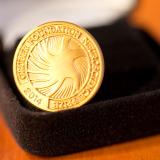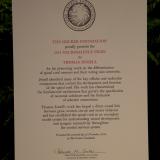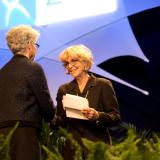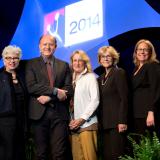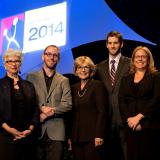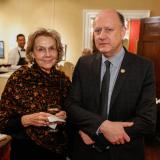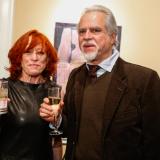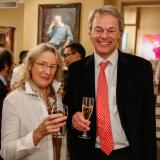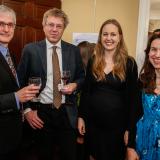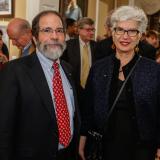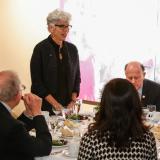2014 Gruber Neuroscience Prize
2014 Neuroscience Prize Recipient
Laureate Profile
A Londoner by birth, Thomas Jessell has made the United States his home for the past four decades. In 1978, a year after receiving his PhD in neurochemical pharmacology from Cambridge University, Jessell moved to Cambridge, Massachusetts, where he worked as a post-doctoral researcher in the Harvard University neuroscience lab of Gerald Fischbach, studying the development of the synapses between motor neurons and muscle cells.
In 1981, Harvard appointed Jessell as an assistant professor in the Department of Neurobiology , where he remained for four years before moving to Columbia University in New York City. At that time, 1985, the molecular neurobiology revolution was still in its infancy. Jessell anticipated, that molecular genetic approaches were going to be essential for unraveling the mysteries of the central nervous system (CNS), including his specific area of interest: the motor circuitry of the spinal cord.
In the ensuing years, Jessell conducted a series of groundbreaking studies that have identified many of the key cellular, molecular, and genetic mechanisms that control the neural development and organization of the spinal cord. As a result, he is now recognized as one of the world’s leaders in the field of motor neuroscience. Jessell has shown, for example, how certain signaling molecules, such as Sonic hedgehog (Shh), determine the “fate” (subtype and role in movement) of motor neurons during the earliest stages of spinal cord development. He has also pioneered processes that coax embryonic stem cells into becoming motor neurons.
Jessell’s research has given scientists important new insights into how stem cells might be used to treat degenerative spinal cord diseases, such as amyotrophic lateral sclerosis (ALS). But the implications of his discoveries go beyond the spinal cord. Neuroscientists now use the spinal cord as a model system for studying the neural circuitry of other, more complex areas of the CNS.
Jessell has inspired and mentored a long line of graduate and postdoctoral students through the years, including many who are now recognized leaders in neural developmental research. He is currently the Claire Tow professor of Neuroscience and Biochemistry & Molecular Biophysics at Columbia, and also serves as co-director of the university’s Mortimer B. Zuckerman Mind Brain Behavior Institute.
Citation
The Gruber Foundation proudly presents the 2014 Neuroscience Prize to Thomas Jessell for his pioneering work on the differentiation of spinal cord neurons and their wiring into networks.
Jessell identified many of the key cellular and molecular components that control the development and function of the spinal cord. His work has characterized the fundamental mechanisms that govern the specification of neuronal subclasses and the formation of selective connections.
Thomas Jessell's work has forged a direct causal link between gene, neuron, circuit and motor behavior and has established the spinal cord as an exemplary model system for understanding neural development and synaptic connectivity throughout the central nervous system.




